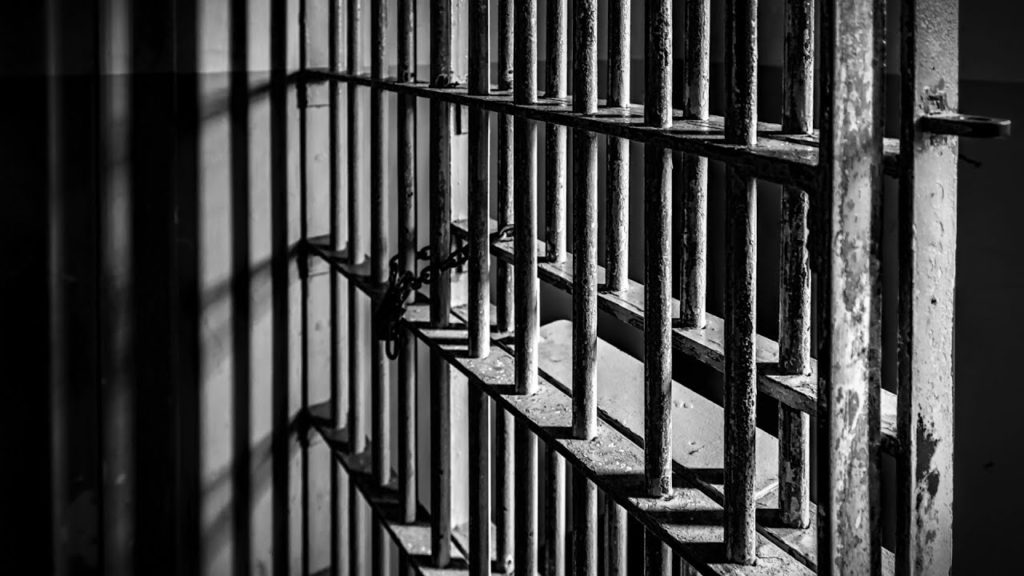BRUSSELS BEHIND THE SCENES
Weekly analysis and untold stories
With SAMUEL STOLTON
Other Brussels behind the scenes stories:
Who wins from the Coronavirus blamegame?
Coronavirus in Europe's last dictatorship
What the hell happened to Viktor Orbán
Breaking open our covid prisons:
Who should we let free?
Italian prisons have released elderly Mafiosi, convicts in Cyprus have pleaded to be locked up again, Belgian prisoners are refusing to return to their cells, correctional facility staff in Malta have been asked to ‘move-in’ to jails.
The crisis has had a substantial impact on Europe’s prisons, bringing to the fore the issue of how to appease the maddening rage of contagion taking over our correctional facilities.
In early April, Dunja Mijatovic, the Commissioner for Human Rights at the Council of Europe, noted that prisoners are the most ‘vulnerable to viral contagion,’ being confined to high-risk environments unfit to deal with large-scale epidemics, with cramped cells and poor health facilities.
Sent out every Friday afternoon, BRUSSELS BEHIND THE SCENES brings the untold stories about the characters driving the policies affecting our lives. Analysis not found anywhere else, The Brussels Times' Samuel Stolton helps you make sense of what is happening in Brussels.
If you want to receive Brussels behind the scenes straight to your inbox every Friday, subscribe to the newsletter here.
Since then, draconian limits on out-of-cell time, a lack of hygiene and personal protective equipment, poor enforcement of social distancing, the curtailment of family visits, and cancellations of rehabilitation programs, have all resulted in Europe’s prisons becoming social microcosms of a perverse experiment in penitentiary pandemonium.
The European Parliament has started to dig into the issue further recently. “There has been a very swift move towards maximal internal restrictions as soon as possible without putting in all countries the appropriate mitigating measures in place,” Malcolm Evans, Chair of the United Nations Subcommittee on Prevention of Torture, told Parliament’s Human Rights Subcommittee last week. Evans added that the UN has also come into information showing that some states have been preferentially selecting who should warrant release and who shouldn’t.
The worry in this respect is that certain countries are using the crisis as an excuse to “release people who the authorities would like to see out of detention, rather than releasing those who might naturally be assumed to be first in line for release,” Evans said.
In early April, a Latvian Member of the Parliamentary Assembly of the Council of Europe (PACE), Boriss Cilevics, saw this coming.
“I welcome the measures taken in many countries to release from prison non-violent prisoners who do not pose a threat to society or to apply non-custodial sanctions to them,” he said.
“Prisoners with political backgrounds, such as the Catalan politicians convicted for their role in the unconstitutional referendum in October 2017, or the Turkish parliamentarians, mayors and other politicians imprisoned for speeches made in the exercise of their mandate, should certainly benefit from such measures,” Cilevics added.
Since Cilevics’s statement, Former Vice-President of Catalonia, Oriol Junqueras, who was jailed for 13 years after being found guilty of sedition and misusing public funds, has been granted part-time leave from Lledoners prison in Barcelona. There have also been calls from the Catalan Justice Minister Ester Capella for other political prisoners in Spain to be afforded their liberty amid the quarantine period.
Under the spectre of a public health crisis, does a certain state have the maturity to release its political opponents, who most of the time pose no risk to society at large? Or, fevered by prepubescent and fickle impulses, does a state decide against releasing such prisoners, in favour of those who actually could pose a potentially violent threat to its own citizens?
The coronavirus is calling into question the very fundamentals of the Western tradition of the social contact – the surrendering of individual freedoms to act in a certain way, in exchange for the benefit of protection. The right of society to punish is granted when this agreement is violated.
In the current circumstances, for many of Europe’s prisoners today, this right has been extended for some and lessened for others, i.e. those deemed to not be a threat to society have been granted leave from incarceration (like the Italian Mafiosi), while others are condemned, without due justification when compared to those who have been released, to remain incarcerated in the high-risk contagion environments, as Mijatovic describes them.
“Certain prisoners are being chosen and released, but political prisoners are prisoners of conscience and they don't pose a risk at all for their fellow citizens. They're the ones that are remaining in the prisons.” Isabel Wiseler-Lima, EPP MEP said earlier this week. “The people that are being released pose a greater risk to the community at large.”
It’s evident that there should be a universal paradigm for agreeing on who should be released from prisons amid the crisis. Confining harmless inmates to unsafe domains peppered by hives of contagion is inhumane. The maturity of a society can be measured in the degree of communion and compassion it is still able to contract with those who have offended its core principles.
Sent out every Friday afternoon, BRUSSELS BEHIND THE SCENES brings the untold stories about the characters driving the policies affecting our lives. Analysis not found anywhere else, The Brussels Times' Samuel Stolton helps you make sense of what is happening in Brussels.
If you want to receive Brussels behind the scenes straight to your inbox every Friday, subscribe to the newsletter here.

